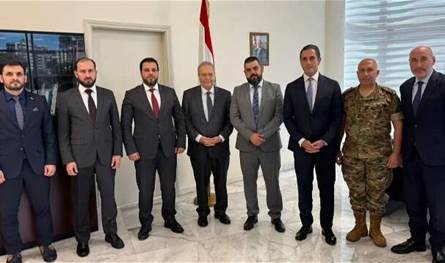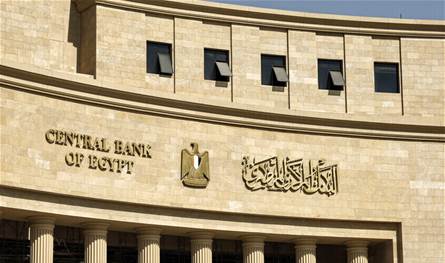Lebanese -Syrian relations .. Why is the ministerial visit to Beirut late?

After the Lebanese were waiting for a Syrian ministerial delegation to visit repeatedly since the new administration took over, a “technical” delegation landed in Beirut, where Deputy Prime Minister Tariq Mitri met before he announced a decision to form two specialized committees: the first judicial concerned with the file of the detainees, and the second border dealing with the control of crossings and demarcation. Although the move paves the way for a close ministerial visit, the moment remains: Why did the visit not yet happen, while Damascus is active towards several Arab capitals?
At the table of the two committees, files appear “heavy”: the Syrian detainees in Lebanese prisons, the lost Lebanese in Syria, control the border and prevent smuggling, in addition to reviewing and improving bilateral agreements, opening the door for more regular economic and security cooperation. In this sense, the role of the two committees is not limited to a “negotiating technique”, but rather a mechanism for launching new legal frameworks that rearrange the relationship on institutional foundations instead of circumstantial treatments.
It is not hidden from anyone that the judicial file is the most sensitive and compulsion, which was mainly done when some intentionally leaked talk about Syrian “dissatisfaction” that may reach the extent of “action”. In Lebanon, more than two thousand Syrian detainees, including about 800 detainees, are based on security issues, a number that doubles internal pressure and calls for a tight legal path for any delivery or recovery, so do things enter the “solution” field, by law?!
Why was the ministerial visit late?
Before talking about the two expected committees and the outstanding files, it is necessary to stop at the reasons for the delay in the Syrian ministerial visit to Lebanon, especially since the new administration in Syria has since its arrival to power with extensive visits to most of the Arab countries, while Lebanon, which is the most close to it, is excluded from the “agenda”, and although the Lebanese officials have visited Damascus in recent months, and among them the current prime minister Nawaf Salam, and the former Naguib Mikati.
The knowledgeable talks about the reasons for “overlapping” behind this delay, the first of which can be described as the option of “technical calm”, as the new Syrian administration appears to be continuing in the policy of dismantling mines through technical channels before moving to large political s. Perhaps keeping the meeting away from the media bustle, and focusing on the committees, indicating the preference of “silent achievement” over the resonant addresses. This is consistent with the sensitivity of the files raised, especially those arrested and missing, and their intersections with highly polarized Lebanese internal issues.
In addition to this dimension, other factors, including Lebanese accounts, attend, as any judicial understanding needs a parliamentary majority to approve it, and it is difficult to pass without a wide political umbrella that takes into account the different approaches of power regarding the relationship with Damascus, and the border file opens automatically to combating smuggling, and distributing the centers of influence on both sides of the borders, which requires time and security coordination paths and parallel economic coordination in order to not It turns into an attraction, without also forgetting to link to the file of displacement, especially since the return of refugees has become a fixed item in any Lebanese agenda.
Compression numbers and political messages
In this sense, it can be said that the agreement on the two committees is a first step in the course of the new Lebanese -Syrian relations, knowing that the new administration adheres to the necessity of resolving the file of the Syrian detainees in Lebanon before any research or discussion, and it is keen in this context to send a message to officials that the “new relationship” with Lebanon will not be a repetition of the time of guardianship, but rather based on written agreements and organized review of the previous legacy.
On the border line, it does not seem less complicated, as any serious border agreement needs a technical survey, exchange of data and identification of defect points, up to joint mechanisms for monitoring, beauty and punitive pledges against smuggling networks. Therefore, the formation of the border committee can be understood as a step towards “legalization”, which remained long under the category of circumstantial understandings, and later linking it to economic paths (transit, energy, and trade) that motivates both parties to commit.
Here also, the practical character of the committee explains the reason for the postponement of the ministerial visit: unless the maps and technical files are accomplished, the visit will appear just a memorial image, according to what the knowledgeables say that one of the lessons of the past decade says that Lebanese -Syrian relations are not managed by slogans. For this reason, the new Syrian administration appears to be in need of agreements that show its transition from the mentality of the “security administration” to the “institutional organization” model, while Lebanon needs a legal umbrella that it fortifies before the international judiciary, public opinion and human rights organizations, and reduces the price of border chaos.
If the two committees succeed in producing two drafts, judicial and equivalent, the expected ministerial visit becomes more than a “political signal”, but rather the culmination of a legislative technical path capable of withstanding the daily storms in Beirut and Damascus alike. As for the failure to install this path, the discussion will be returned to the circle of old suspicions: the Lebanese interior of the unaccounted political and legal cost, and a Syrian is evident that the files will turn into unparalleled pressure leaves. And between these two limits, the final word remains for the committees ..
The post Lebanese -Syrian relations .. Why is the ministerial visit to Beirut late? appeared first on 961 tobay Lebanon today.
















